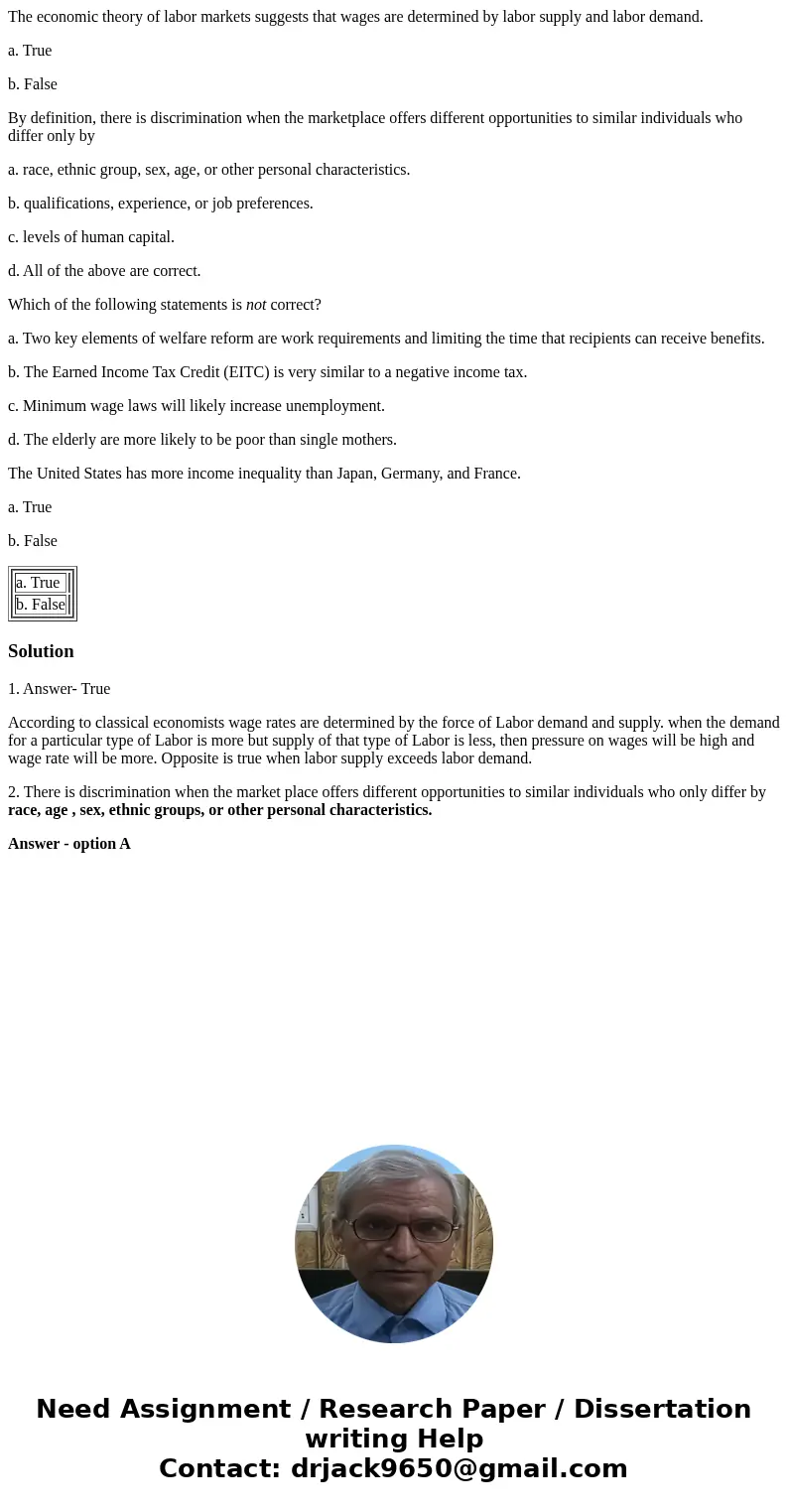The economic theory of labor markets suggests that wages are
The economic theory of labor markets suggests that wages are determined by labor supply and labor demand.
a. True
b. False
By definition, there is discrimination when the marketplace offers different opportunities to similar individuals who differ only by
a. race, ethnic group, sex, age, or other personal characteristics.
b. qualifications, experience, or job preferences.
c. levels of human capital.
d. All of the above are correct.
Which of the following statements is not correct?
a. Two key elements of welfare reform are work requirements and limiting the time that recipients can receive benefits.
b. The Earned Income Tax Credit (EITC) is very similar to a negative income tax.
c. Minimum wage laws will likely increase unemployment.
d. The elderly are more likely to be poor than single mothers.
The United States has more income inequality than Japan, Germany, and France.
a. True
b. False
|
Solution
1. Answer- True
According to classical economists wage rates are determined by the force of Labor demand and supply. when the demand for a particular type of Labor is more but supply of that type of Labor is less, then pressure on wages will be high and wage rate will be more. Opposite is true when labor supply exceeds labor demand.
2. There is discrimination when the market place offers different opportunities to similar individuals who only differ by race, age , sex, ethnic groups, or other personal characteristics.
Answer - option A

 Homework Sourse
Homework Sourse